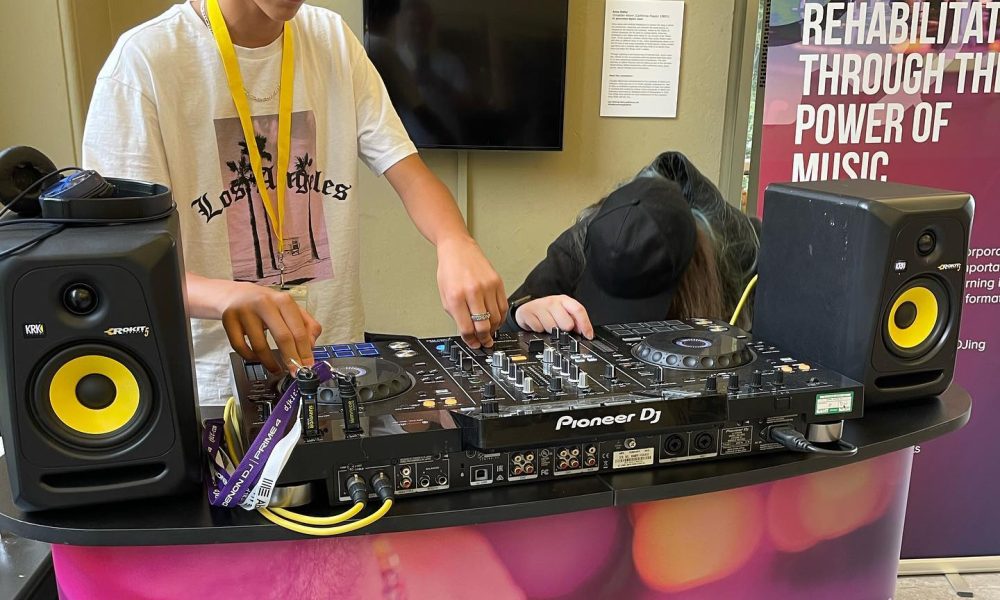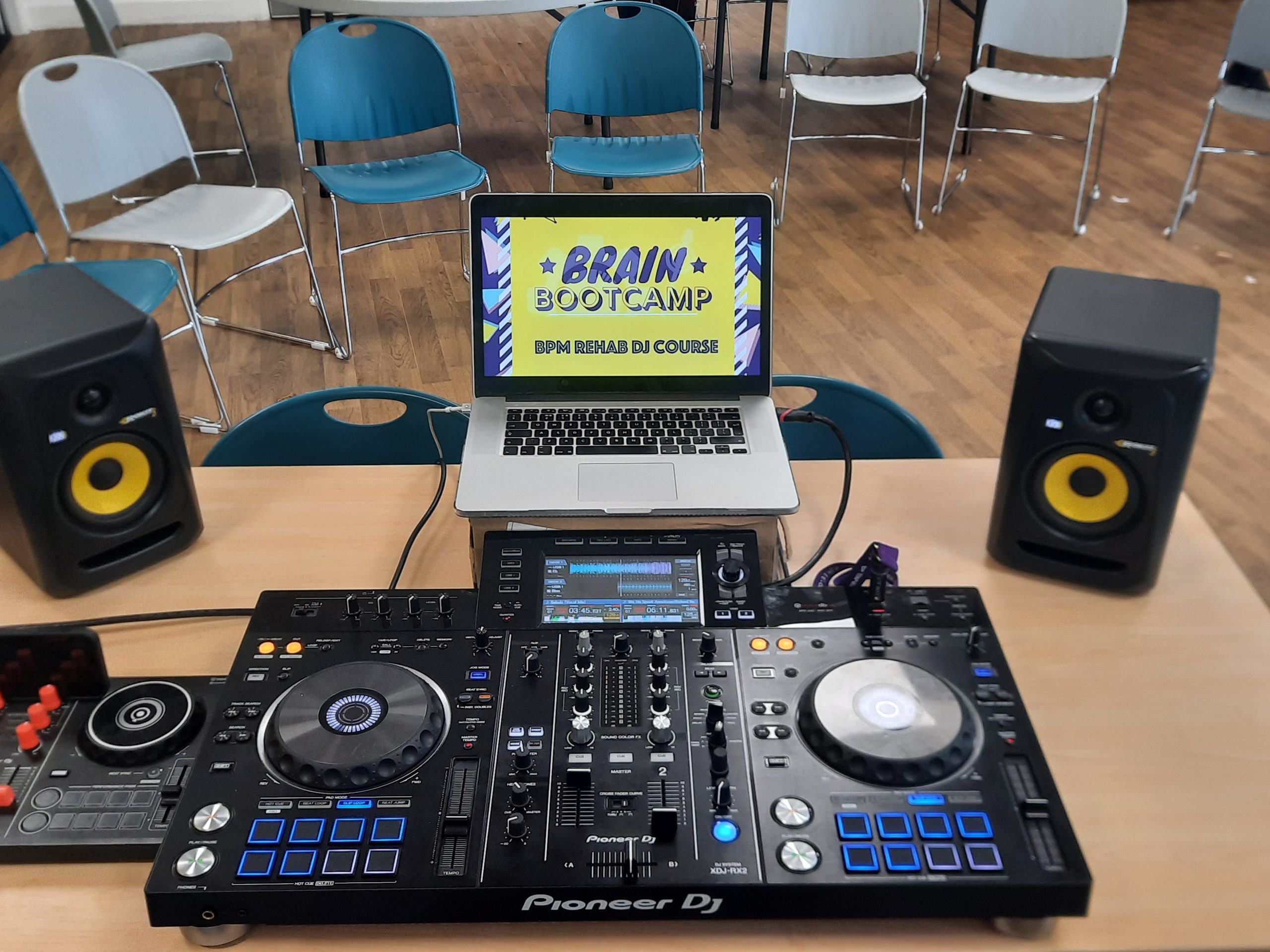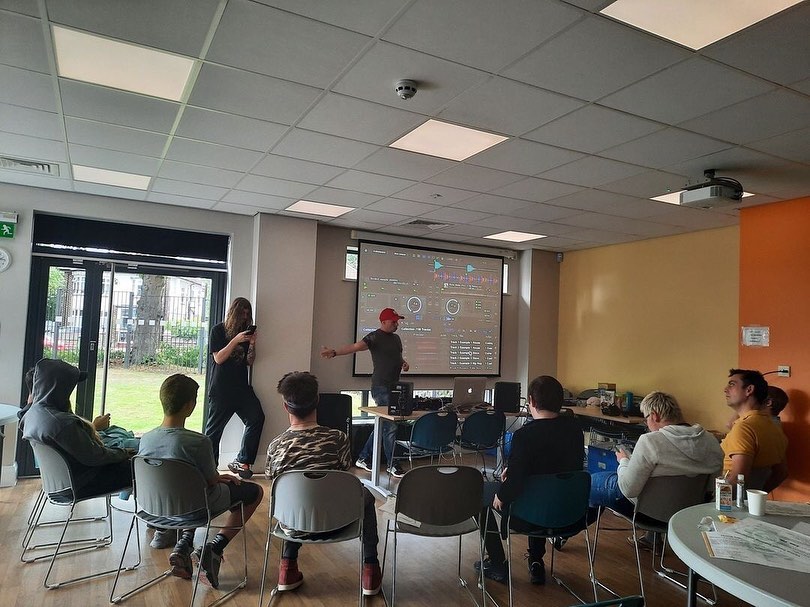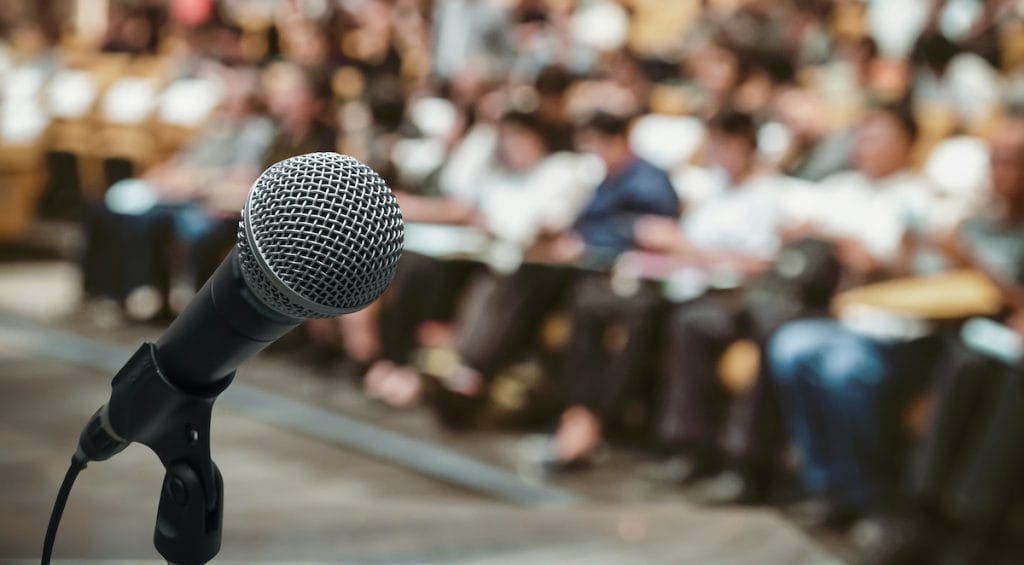
After realising the potential of DJing as a resource for brain injury survivors, Dr Penny Trayner and DJ Mark One joined forces to bring something entirely new to the world of neuro-rehab
“The thing my service needed didn’t exist, so I made it” – Dr Penny Trayner, paediatric clinical neuropsychologist, DJ, healthcare technology entrepreneur.
The rehabilitation of acquired brain injuries is a complex process, often requiring the involvement of multiple clinicians for sustained periods of time. Consequently, it is common that service users’ motivation to meet the demands of the therapy programme dramatically decreases overtime (Trayner, 2022).
Despite their best effort, the rehabilitation goals of clinicians may not align with the goals of the service user. Evidence demonstrates that to increase participation in rehabilitation programmes, service users must be provided with direction and given meaningful goals to work towards, that meet their personal values (Wade, 2009). There is commonly a focus on the physical and psychological aspects of rehabilitation, however, the social impacts of acquired brain injuries are frequently neglected.
Research has demonstrated that brain injury survivors experience a loss of social identity (Muldoon et al., 2019), yet there is a lack of therapies considering the social currency given to service users.
The use of music therapy is well established (Magee et al., 2017), however, this does not traditionally involve DJing, despite it being recognised as a skilled art form allowing people to express individuality and creativity (Smart et al., 2019). Therefore, upon meeting, Dr Penny Trayner, clinical neuropsychologist, and DJ Mark One, internationally-renowned DJ, realised that DJing was a severely underused vehicle for helping people to overcome catastrophic injuries (Trayner, 2022).
This led them to develop a DJing for rehabilitation programme, which piloted as part of a four-day, non-residential summer ‘Brain Bootcamp’, in 2019.

About Brain Bootcamp
Throughout the initial Brain Bootcamp, attendees received psychoeducation and cognitive skill training from Dr Trayner as well as real world application of taught skills through DJing. DJ Mark One, lecturer and national assessor for accredited graded music examinations, taught the learners mixing ability, understanding of music, hardware and software, habituation to music environments and gave opportunities to showcase their craft (Trayner, 2022).
All interventions and technology innovations at Brain Bootcamp were aimed at being accessible and cost effective. As modern DJing is digital, all equipment can be adjusted to the degree of motor involvement, pre-programming can reduce cognitive and motor demands, or software can automatically match beats to mix tracks, increasing the success rate of the learners and therefore boosting their gratification (Smart et al., 2019).
Brain Bootcamp Outcomes
A preliminary study conducted by Trayner and Dowson (2020) demonstrated that Bootcamp attendees showed increased resilience, optimism, self-efficacy, trust, and control and a reduced vulnerability following the Brain Bootcamp, related to the novel social opportunities presented to them, as the programme was the first time that many of the attendees had knowingly interacted with other people with acquired brain injuries.
In addition to the wealth of positive cognitive outcomes, many parents of the learners stated that social opportunities presented the greatest outcomes from the programme, Following the camp, they reported that the attendees demonstrated increased engagement within their wider rehabilitation programmes, as well as greater integration with their peers. This is in line with previous research, demonstrating that being part of a social group with others affected by similar difficulties reduces feelings of disability (Muldoon et al., 2019) and promotes wellbeing and health.
Following the triumph of the pilot programme, Dr Trayner and DJ Mark One established their DJ Training Academy, BPM Rehab in 2022, and have continued to run the Brain Bootcamp on an annual basis. Most of the attendees have requested to return in following years. Many learners have gone on to progress through the BPM Rehab programme to receive accredited qualifications in music, seek further education at prestigious music institutions and pursue a career in music.
If you have any questions about the Brain Bootcamp, including how to sign up, please visit the BPM Rehab website using the following link: https://www.bpm.rehab/contact

Credit:
Charlotte Giblin, assistant psychologist, Clinical Neuropsychology Services
Dr Penny Trayner, clinical neuropsychologist, Clinical Neuropsychology Services. Co-founder, BPM Rehab.
DJ Mark One, co-founder, BPM Rehab.
References
Magee, W. L., Clark, I., Tamplin, J., & Bradt, J. (2017). Music interventions for acquired brain injury. Cochrane Database of Systematic Reviews, (1).
Muldoon, O. T., Walsh, R. S., Curtain, M., Crawley, L., & Kinsella, E. L. (2019). Social cure and social curse: Social identity resources and adjustment to acquired brain injury. European Journal of Social Psychology, 49(6), 1272-1282.
Smart, A., Smart, S., & Dent, T. (2019). How to DJ: A guide to DJ-ing and electronic music. Faber Music Limited.
Trayner, P. (2022). Harnessing Technology to Level the Playing Field: A Route to More Efficient and Accessible Services in Rehabilitation. In Systemic Approaches to Brain Injury Treatment (pp. 136-152). Routledge.
Trayner, P., & Dowson, M. (2020). Rehabilitation in the real world: An exploration of meaningful community interventions for young people with acquired brain injury [Poster Presentation]. Annual Conference of ACRM, Atlanta, Georgia, USA.
Wade, D. T. (2009). Goal setting in rehabilitation: an overview of what, why and how. Clinical Rehabilitation, 23, 291-295.







